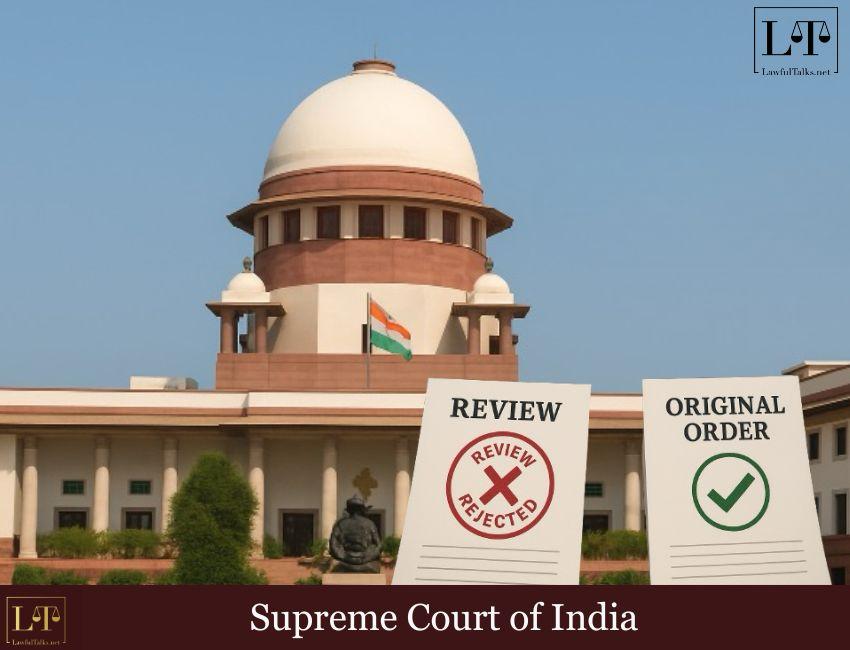Allahabad HC Sets Aside Afzal Ansari's Conviction, Allows Him to Continue as MP

The Supreme Court, led by Justice Dipankar Datta and Justice KV Viswanathan , delivered a crucial ruling clarifying the limits of challenging orders related to review petitions.

The Court emphasized that an order dismissing a review petition cannot be independently contested because it simply reiterates the original order or decree. Instead, any party aggrieved must directly challenge the original order or decree and not the rejection of the review petition itself.
In explaining this, the Court highlighted that when a review petition is denied, no fusion takes place between the dismissal order and the original decree.
The judgment stated: “Whenever a party aggrieved by a decree or order seeks a review thereof based on parameters indicated in Section 114 read with Order XLVII, CPC and the application ultimately fails, the decree or order under review does not suffer any change. It remains intact. In such an eventuality, there is no merger of the decree or order under review in the order of rejection of the review because such rejection does not bring about any alteration or modification of the decree or order; rather, it results in an affirmation of the decree or order. Since there is no question of any merger, the party aggrieved by the rejection of the review petition has to challenge the decree or order, as the case may be, and not the order of rejection of the review petition.”
The Court further clarified that if a review petition is granted and the matter is reopened for rehearing, Rule 7(1) allows the aggrieved party to immediately object either to the order permitting the review or to appeal against the final decree or order after rehearing.
Background:
The case in question involved addressing two Special Leave Petitions (SLPs). One SLP challenged the rejection of a review petition by the High Court, while the other contested the original order of the High Court itself. Justice Datta, authoring the judgment, dismissed both SLPs.
The Court held that the SLP challenging the review rejection was not maintainable since it targeted only the rejection order. The other SLP was barred because it was re-filed following an unconditional withdrawal of the earlier SLP without seeking permission to re-file.
Case Details: SATHEESH V.K. VERSUS THE FEDERAL BANK LTD.

Anam Sayyed
4th Year, Law Student
Latest Posts
Categories
- International News 19 Posts
- Supreme Court 390 Posts
- High Courts 383 Posts



















































































































































































































































































































































































































































































































































































































































































































































































































